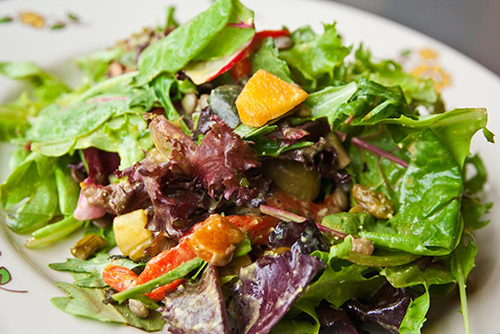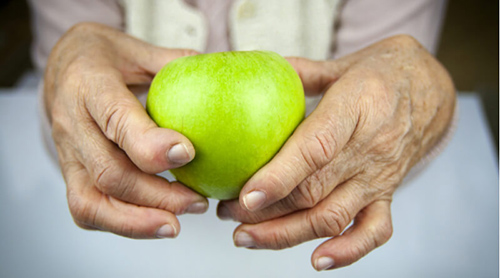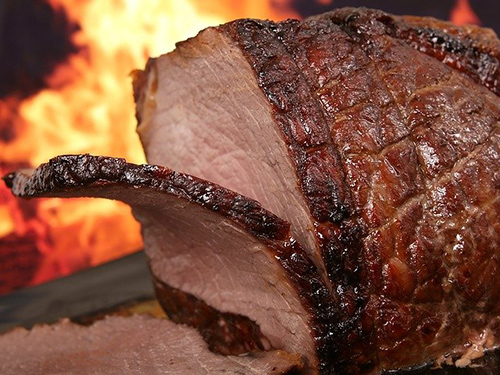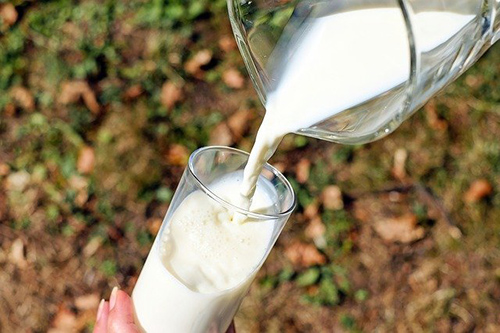Rheumatoid arthritis diet: This condition causes inflammation of the joints for which there is no known cause or cure. It is most frequent in middle-aged women. It affects the hands, feet, and small joints, causing swelling, pain, functional disability, and joint deformation.
People with rheumatoid arthritis tend to suffer from anemia, stomach ulcers, protein loss, and malnutrition. Because of this, and because certain foods worsen the disease, a rheumatoid arthritis diet is most important. These are the possible results of four types of diet for rheumatoid arthritis:

- Omnivorous: This diet is based on meat and animal products; however, it irritates the disease and worsens the swelling of your joints.
- Ovolactovegetarian: This diet promotes improvement when it replaces an omnivorous diet. Yogurt is the best-tolerated dairy product.
- Strict vegetarian (vegan): This rheumatoid arthritis diet produces the best results, particularly if it emphasizes raw fruits and vegetables.
- The Mediterranean diet for rheumatoid arthritis can be beneficial; however, you must limit meat, alcohol, and dairy consumption.
Rheumatoid arthritis patients possess more antibodies to two intestinal bacteria: Escherichia coli and Proteus mirabilis. These species grow under an omnivorous diet and decrease when the diet is vegetarian or with “biotic” yogurt. This phenomenon helps explain the fact that rheumatoid arthritis improves with a vegetarian diet.
Rheumatoid Arthritis Diet: Foods You Should be Eating
FRUITS: A rheumatoid arthritis diet of raw foods and vegetables provides a substantial improvement in symptoms, reducing inflammation, pain, and joint deformation.

LEGUMES: Legumes help meet the greater protein need in rheumatoid arthritis patients. Combined with grains, they provide high-quality proteins. It has been amply demonstrated that a strict vegetarian diet (vegan), in which legumes play a central role, reduces inflammation and improves the disease’s symptoms.
SOY: Soy is particularly beneficial since it is one of the few plant-based foods that supply omega-3 fatty acids, akin to those in fish, which act as anti-inflammatories. Tofu, soymilk, and other soy derivatives are equally valuable.
VEGETABLES: Vegetables are among the best food for rheumatoid arthritis. With fruits and other plant-based foods, vegetables must form the basis of any rheumatoid arthritis diet and exercise plan. The only exception is those vegetables of the botanical family Solanaceae since they can produce allergic reactions in some arthritis patients because of their solanine content. Consequently, foods to avoid are tomatoes, peppers, potatoes, and eggplant.
NUTS: Nuts are an exceptional addition to any rheumatoid arthritis diet; they provide polyunsaturated fatty acids that reduce inflammation in arthritis patients in much the same way as fish oil. They are also a good source of protein, minerals, and vitamin E, which benefits this disease.
WHOLE GRAINS: Grains are the foundation of the rheumatoid arthritis diet recommended for patients, together with legumes, vegetables, fruits, and nuts.
OILS: Vegetable oils rich in polyunsaturated fatty acids pause the inflammation process that causes rheumatoid arthritis. Soy, canola, grape seed, and wheat germ oils are some of the most beneficial.
FISH OIL: Supplemental fish oil (up to 10 g daily) has a slight anti-inflammatory effect that reduces the need for medication. Its effect is noticeable after about two months due to the omega-3 fatty acids it contains.
SAUERKRAUT: Sauerkraut’s beneficial effect on arthritis is a result of its lactic acid content.
BLACK CURRANT: The leaves of this plant, and to a lesser extent, the fruit, halt the inflammatory process of the joints and are active anti-rheumatics.
WALNUT: Walnuts are a great addition to any anti-inflammatory diet meal plan. This nut is a vegetable source of linolenic acid, which belongs to the omega-3 group and is similar to that found in fish. Walnuts act as anti-inflammatories in cases of this disease.
WHEAT GERM: Wheat germ also contains anti-inflammatory omega-3 linolenic acid, in addition to vitamin E, which helps halt the progress of this disease.
YOGURT: So-called “biotic” yogurt contains live lactobacilli that positively affect this condition when combined with a rheumatoid arthritis diet of raw and plant-based foods. An explanation is that yogurt, like vegetables, improves intestinal flora, reducing certain bacteria involved in initiating rheumatoid arthritis.
Rheumatoid Arthritis Diet: Foods to Avoid for Arthritis

MEAT: A wide range of experiences prove that a vegetarian diet reduces the inflammation of rheumatoid arthritis, while an omnivorous diet aggravates it. One of the reasons for this is meat’s high levels of arachidonic acid, a fatty acid that the body uses to produce eicosanoids. These substances initiate inflammatory processes. Therefore, meat is one of the main foods to avoid for arthritis.
PORK: Pork is scientifically proven to cause inflammation, possibly because of its high levels of arachidonic acid. Rheumatoid arthritis patients must put pork on the list of foods to avoid for arthritis.
ALCOHOLIC BEVERAGES: Any alcoholic beverage is on the top of the list of foods to avoid with rheumatoid arthritis and any other rheumatoid disease.

MILK: The activity of IgG and IgA antibodies against alpha-lactoalbumin (a milk protein) is higher in rheumatic arthritis patients. This activity leads to the speculation that milk may be one of the foods responsible for the inflammatory reaction typical of rheumatoid arthritis. Lacking definitive research, it seems prudent that those suffering from this disease should avoid milk.
EGG: Eggs and rheumatoid arthritis do not mix. After the meat, eggs are the richest in arachidonic acid, the principal precursor of eicosanoids. These substances act as mediators of the inflammatory process that results from rheumatoid arthritis.
ADDITIVES: Additives may cause food allergies, which can aggravate the inflammatory reaction of rheumatic arthritis. It is wise to avoid manufactured products containing additives, such as coloring agents.
DISCLAIMER: All content on this website is presented solely for educational and informational objectives. You should not rely on the information provided as a replacement for advice, diagnosis, or treatment from a qualified medical expert. If you are pregnant, nursing, or have any preexisting medical concerns, you should talk to your doctor before using any herbal or natural medicines.
REFERENCES
- George D. Pamplona-Roger, M.D. “Encyclopedia of Foods and Their Healing Power.” George D. Pamplona-Roger, M.D. Encyclopedia of Foods and Their Healing Power. Trans. Annette Melgosa. Vol. 2. Chai Wan: Editorial Safeliz, 2005. 317,318. Print. [Rheumatoid Arthritis Diet]
- Arthritis Foundation: https://www.arthritis.org/
- Johns Hopkins Arthritis Center: https://www.hopkinsarthritis.org/
- National Rheumatoid Arthritis Society (UK): https://nras.org.uk/
- “Best Foods for Rheumatoid Arthritis”: https://www.arthritis.org/living-with-arthritis/arthritis-diet
